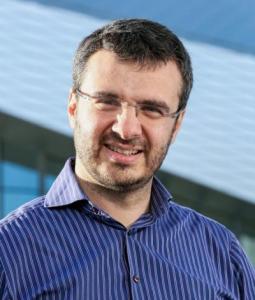TRAFFIC CONGESTION IN SMART CITIES WITH BIG DATA

École polytechnique fédérale de Lausanne
This talk tackles the problem of modeling and optimization in large-scale congested traffic networks in a holistic way with an aggregated realistic representation of traffic dynamics and route choice and multiple modes of transport. We talk about the integration of big multi-sensor data, the understanding of multimodal patterns, the coordination and optimization of urban efficiency for the travel of people. This is challenging because cities are highly complex systems. This seminar will describe methodologies to model and understand the collective behavior for different types of urban systems. It will highlight under what physical properties the aggregated laws will provide reasonable description of congestion for single- and multi-modal systems. It will also describe how to develop hierarchical feedback control and optimization tools and investigate what type of real-time active traffic management schemes (congestion pricing, vehicle restriction, large scale traffic signal control) can improve mobility measures in a city for cities of different structures. The validation of the methodologies and the traffic management schemes are conducted in various and complex city structures scenarios using data from large field experiments and detailed simulations.
Prof. Nikolas Geroliminis is an Associate Professor at EPFL and the head of the Urban Transport Systems Laboratory (LUTS). Before joining EPFL he was an Assistant Professor on the faculty of the Department of Civil Engineering at the University of Minnesota. He has a diploma in Civil Engineering from the National Technical University of Athens (NTUA) and a MSc and Ph.D. in civil engineering from University of California, Berkeley. He is an Associate Editor for Transportation Research part C and he also serves in the editorial board of TR, part B, part C, Journal of ITS and of many international conferences. He is a member of the Transportation Research Board's Traffic Flow Theory Committee. His research interests focus primarily on urban transportation systems, traffic flow theory and traffic control, public transportation and logistics, Optimization and Large Scale Networks. He is a recent recipient of the ERC Starting Grant “METAFERW: Modeling and controlling traffic congestion and propagation in large-scale urban multimodal networks”